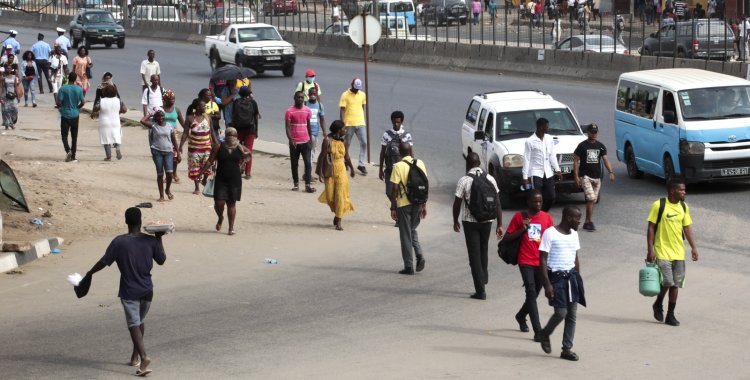According to the bishops of the Episcopal Conference of Angola and São Tomé (CEAST), the fifth general elections, held on August 24, 2022, were an important event, which "despite the various perplexities" allowed to maintain governance continuity.
"But, at the same time, they helped to perceive the urgent need to invest in republican institutions that are above party interests and in the profound reform of the State", they refer, in a communiqué regarding the opening of the 1st Plenary Assembly of CEAST, which started this Thursday, in Luanda.
For the Catholic bishops, the citizens' civic and political awareness "happily grows day after day, calling not for an Angola of militants, of committed and consistent patriots, not for an Angola of intriguers, intolerant and elitists, but for an Angola of all and for all".
The bishops also call for an Angola "inclusive, welcoming and cultivating merit, competence, consensual dialogue and joy for all its sons and daughters and encouraging plural, harmonious and fraternal coexistence".
"Despite the difficulties inherent in the political world of government, we continue to feed the hope of better days for our country", they say.
In the message signed by the president of CEAST, José Manuel Imbamba, and presented to the press by the vice-president of the episcopal conference, Estanislau Marques Chindecasse, the prelates also salute the efforts of the executive in the fight against poverty.
They praise the bet on the reconstruction and recovery of roads, mainly primary roads, the construction of schools, hospitals and more structuring undertakings, but warn of the "tension", which they say exists, between the works of central and provincial scope.
"These cause inertia and slowness in situations that require quick responses", signal the bishops of CEAST, regretting, however, the "worrying" situation of poverty in which many Angolan families find themselves.
"Despite the expressed will, the country's social framework continues to inspire a lot of care, the level of poverty of our families remains worrying", they say.
Alluding to a report by the non-governmental organization Action for Rural Development and the Environment (ADRA), the bishops refer that Angolans who live in more remote areas of the country experience poverty "in an asphyxiating proportion".
"Hence the vulnerability to which they are exposed to many charlatans and fraudsters", they emphasize.
They also criticize the "high rate" of unemployment, especially among young people, considering that the situation is causing many of them to flee to other parts of the world.
"Delinquency and violence are also increasing due to the use of psychoactive substances that little by little are gaining market share, new corrupts and corruptors are being born, always postponing the development of the country and the satisfaction of citizens", they point out.
They also warn that "the culture of intimidation is growing, generating fear and insubordination", they deplore the high number of children outside the education system and even claim that the country's health system "remains sick".
"Finally, the social structure remains unstructured, enhancing situations of violence, generalized addiction and endemic injustices", they add.
In the understanding of the CEAST bishops, the solution to the referred problems involves "the involvement of all the active forces of society, including the church", and urges the "authentic reform of the State", the inner renewal of all citizens, as well as the realization of the dream of municipalities.
"Strong schooling is required, from pre-school to higher education, with a focus on ethics and valuing the figure of the teacher", they argue.
They also encourage the spirit of "permanent dialogue" with the associative and professional classes, aiming to find better ways of satisfaction and motivation, and consider that the State must "empower families", with what is necessary, to guarantee dignity and social peace.
The self-sustainability of the Church in Angola, World Youth Day (WYD) Lisbon 2023 and the Framework Agreement between the Holy See and the Angolan State, signed in 2019, are some of the themes under consideration at this CEAST plenary, which extends to next Thursday.
The works, which bring together bishops from all the provinces and São Tomé, are taking place at the headquarters of the episcopal conference, in the country's capital.







